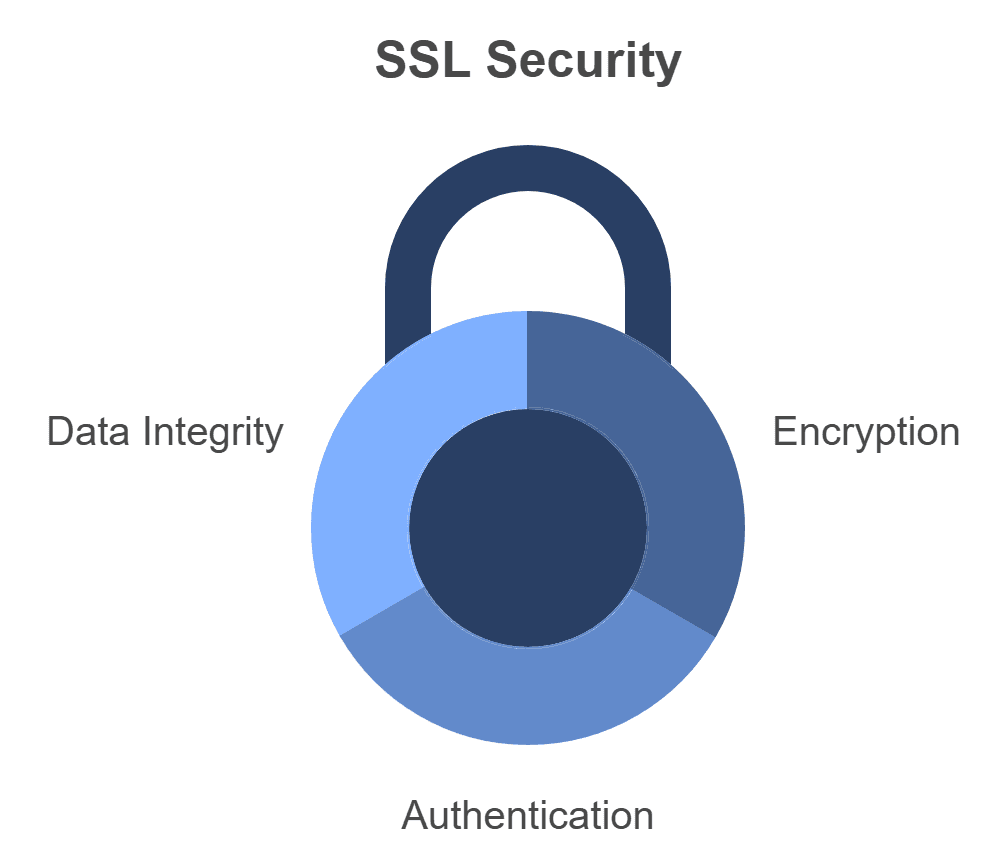Web Development Glossary Terms/SSL (Secure Sockets Layer)
Secure Sockets Layer is a cryptographic protocol that encrypts the data transmitted between a web server and a user's browser, protecting sensitive information like passwords, credit card numbers, and personal details from interception, manipulation, or theft. SSL helps ensure secure communication over the internet and builds user trust through HTTPS protocols.

SSL goes beyond just padding your browser with a shiny lock symbol – it’s a cornerstone for trust and security online. Here’s why SSL should matter to anyone building or managing a digital interface:
Whether you’re submitting a login form, entering your credit card details for an online purchase, or filling out a contact form, the encryption provided by SSL ensures that your data can't be intercepted or stolen mid-transfer. This is especially critical for businesses that rely heavily on digital-first solutions like e-commerce platforms or startups launching their mobile apps.
No SSL? No trust—plain and simple. Most users won’t proceed with browsing or purchasing from a site if it’s flagged as “Not Secure” by their browser. When visitors see the padlock and “HTTPS” in the address bar, it sets a tone of trustworthiness.
Google has openly stated that SSL is a ranking signal. If your website is secured with SSL, it has a better chance to rank higher in search results compared to non-secure alternatives. Sites with SSL certifications align better with efforts like search engine optimization, making this an easy win for improving visibility.
The web is filled with risks, from phishing attacks to man-in-the-middle exploits. Websites using SSL are far less susceptible to these malicious activities, helping you secure both your business and your visitors’ data.
If your business processes any kind of online transactions, SSL isn’t optional—it’s a requirement. Payment gateways like Stripe or PayPal only work with SSL-secured sites to ensure customers’ financial data is transmitted safely.
The process might seem complex on the backend, but the user-facing experience is seamless. Here's a simplified breakdown:
Setting up SSL isn’t as challenging as it might sound. Here's a general guide:
Every digital platform benefits from SSL because it isn’t just about protecting sensitive data. It’s about presenting your platform as trustworthy and dependable.
Startups, SMEs, large enterprises – all of them rely on establishing credibility, whether through website development or launching the next big cross-platform app. SSL signals to users that your brand values them and their data.
So if you're thinking about any digital-forward project, make sure SSL is part of that roadmap.